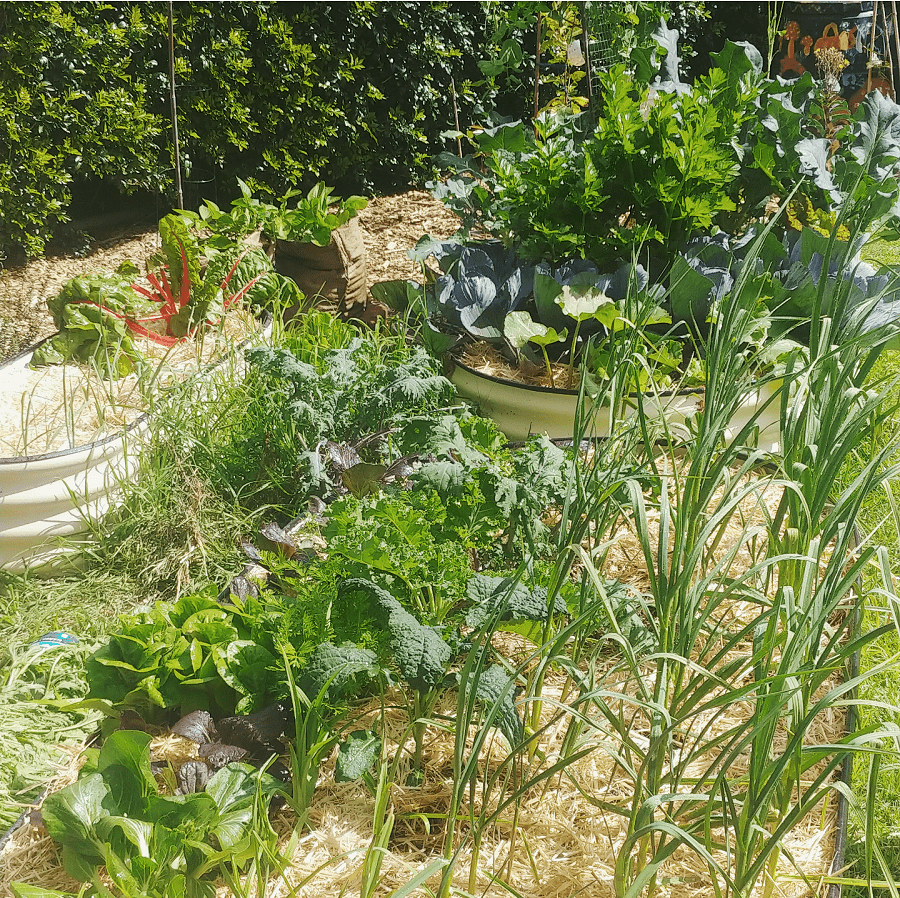How to cancel Christmas (your guide to a truly sustainable festive season)
Yes, I’m talking about Christmas already. But not because I’m planning to spam you with lists of stuff you honestly don’t need. Instead, I wanted to raise the idea of cancelling Christmas – be it the whole thing, or simply the parts that make you stressed, poor and miserable.
The thing about cancelling (or toning down) Christmas – which is why I’m bringing it up now – is that you need to do it early. There will probably be some difficult conversations to have and choices to make, and if you have a plan in your mind and have set your boundaries, you’ll find it a lot easier, I promise.
Now I’m not here to tell you that you should cancel Christmas. I’m here to offer you an alternative to the status quo, and talk you though the steps that I took.
Christmas is a non-event for me. I stopped the gifts, the decorations, the excess food, the waste and the stress of it all at least six years ago. For me, Christmas is a quiet, peaceful (and inexpensive) time of year and I love it.
Every year around this time I like to counter all the ‘sustainable things to buy for him / her / them’ gift guides and ‘zero waste gifts for your boss’s wife / dog / second cousin’s goldfish’ posts by talking about how we can go about December WITHOUT BUYING ALL THE STUFF and working ourselves into a frenzy.
Cancelling Christmas might sound a little extreme, but like most things, it doesn’t have to be all or nothing. Even if you’re not up for cancelling Christmas entirely, there are probably aspects of the holiday that you’d like to let go of (or at the very least, tone down).
This is your permission slip to let the stressful, consumer-driven, wasteful, expensive, unfulfilling and unsustainable parts of Christmas go.

Getting started with ‘cancelling Christmas’
The first thing to do is decide which aspects of Christmas you’d like to cancel. It might be the entire thing, or there might just be certain aspects that you dislike. You might like to just do away with the expensive, stressful and wasteful aspects of the festivities.
(For me, cancelling Christmas is not the same as boycotting Christmas. Cancelling is more like opting out, whereas boycotting is actively avoiding Christmas. Boycotting is a lot more work. I might go to Christmas drinks with friends, or eat a mince pie, but more in the spirit of spending time with people whose company I enjoy and indulging in good food than ‘being Christmassy’. I cancel the parts I don’t want to engage in, and I make exceptions.)
To decide which aspects of Christmas you’d like to cancel, take some time to think about what Christmas means to you, which bits bring you joy, and which bits bring anguish.
(You may love Christmas baking or decorating the tree with your family. You may hate going to your cousin’s Christmas party with all the single-use plastic, processed food and your racist uncle, or find the office tradition of buying ‘novelty’ gifts for everyone in your team a little wasteful.)

Action step: write a list of all the Christmas activities and traditions you’re expecting to have this year, and divide them up into ‘things you love’, ‘things you’re ready to cancel’ and ‘undecided’. You can do this alone, or with your family – whichever you think will work best.
Those things on your ‘ready to cancel’ list are your starting point.
Start making alternative festive plans now
Hoping Christmas will go away by ignoring it until Christmas eve (when you realise it hasn’t gone away, and panic purchase a bunch of things) is not a good strategy. Instead, you need to be thinking about this stuff early. The sooner the better.
The first part of making alternative plans is thinking about what it is you don’t like about the existing plans. From there you can decide if there are alternatives that might work better or be a compromise. (I’m not saying you have to compromise, but you might prefer to ease in gradually, especially if your family is less than convinced.)
I also found it helpful to distinguish between what I actually liked and wanted to do, and what I felt obligated to do. If I’m going to celebrate Christmas, I want to come from a place of joy and not a place of obligation or guilt.
Action step: have a think about the following categories, and decide what aspects of each you like and what you don’t like, and how you could make them better (or whether you can do without).
- Decorations;
- Food;
- Gift wrapping;
- Gifts.
If you’d like some ideas for low waste options for Christmas, you’ll find this post helpful.

Make your rules and set your boundaries
The next step is to make some rules around your Christmas celebrations this year. They might be rules just for you, but more likely there will be rules (let’s call them requests, it sounds less forceful) that you need others to hear.
You might decide that you’re only giving gifts to children this year, and not adults; you might decide that you’re cooking a vegetarian Christmas dinner rather than trying to cater for everyone else; you might decide to only buy second-hand gifts and nothing new; you might decide something else entirely.
Action step: when you’re thinking about your rules, it’s really helpful to think about your ‘why’. What is it about the current situation that you find stressful and why do you want to change? You might have spiritual reasons, environmental reasons, mental health reasons, financial reasons, a mix of a few different things or something else entirely. But knowing why you want to create change will enable you to have better conversations, and also keep you motivated to stick to your rules.
Have some awkward conversations
When it comes to gifts especially, you’ll need to speak to those people you are expecting to give to you (or members of your family). But there might be other things you need to speak about, too. The sooner, the better.
It will probably be an uncomfortable conversation, and can go two ways. On one hand, they might be relieved and pleased to know there’s less expectation, pressure and expense. On the other hand, they might be outraged.
There will probably be a bit of confusion too – why not? What changed? It can be helpful to explain your ‘why’ – that stuff/waste/running around/ spending all your money/trying to do it all makes you anxious, you already have what you need, you’d rather they save their money, Christmas isn’t about the stuff…
If there is a lot of resistance, you might want to discuss compromises. (Then again, you might not!) Compromise a a good way to ease into the shifting of ‘tradition’ and expectation. If ‘no gifts’ is too brutal, maybe a secret Santa arrangement (where a pool of people only buy one gift for one person, rather than for everyone) or some rules around certain types of gifts (no plastic! only second-hand! etc) or choosing experiences instead.
Action step: have any difficult conversations that you need to, but try to make them two-way conversations and not one-way lists of demands. Express your wants and needs but listen to concerns too and try to find a joint place of understanding.
Expect resistance (change never comes in a straight line)
Just because you’ve set some rules, it doesn’t mean that others will follow or respect them. It can be helpful to have a back-up plan – what you’ll say and what you’ll do if people disregard your choices.
Shaking up Christmas can be a big deal for some people, and they may resist. It is my experience that it takes a few years to bring everyone to the party. What helps is sticking to your principles.
For example, you ask for no gifts, and you receive a bunch of stuff you don’t need and know you won’t use. I’m not sure you need to be overly gracious (although you don’t need to be rude). If you have clearly stated your rules and set your boundaries (no gifts, thanks) and someone has just stomped all over them, that’s on them, not you.

You can be polite, and say that you appreciate the gesture but you did clearly ask for no gifts. If that’s too hard (it’s very hard!) you can be polite, say nothing, and make a plan to gift them or donate them as soon as possible.
(I am wary of keeping things when I’ve specifically asked for nothing, as I don’t want to undermine my own rules and reinforce to the other person that they were in fact right. It might be easier in that moment, but it’s not helping in the long-term – and there are a lot more Christmases to come. Here’s a guide to donating unwanted Christmas gifts.)
You might only mention that you donated those unwanted gifts a few months later, when there’s less pressure. It might be that you don’t bring it up until the following Christmas, but these conversations need to happen, and to keep on happening, if you want to create change.
Action step: without overthinking things too much, give some thought to some of the stumbling blocks and how you might be able to deal with them. Having a back-up plan can be helpful.
Don’t be afraid to experiment
Don’t be afraid to try things. It’s okay to give things a go and change your mind. If you cancel Christmas and decide it’s no fun at all, you can ensure next year is the funnest yet. You can go strong this year and soften things up a little next year, if need be.
Sometimes breaking the traditions you’ve held for years can be helpful in deciding which bits you actually do enjoy (and miss).
Now I’d love to hear from you! Which bits of Christmas do you love, and which bits are you ready to cancel? Have you already started cancelling Christmas – what did you do and how did it go? How have you adapted over time? Any advice to add? We’d love to hear your thoughts so please share in the comments below!
[leadpages_leadbox leadbox_id=123a865e9839c5] [/leadpages_leadbox]
















